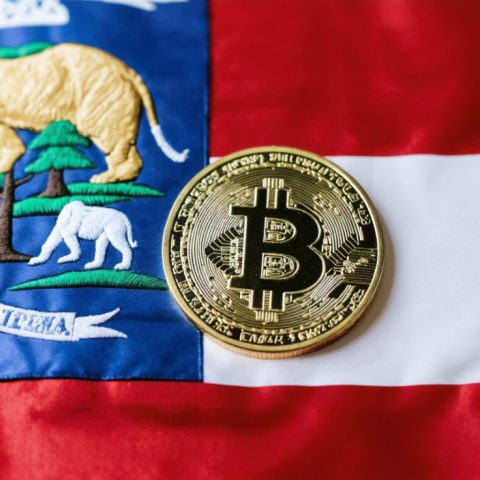Ripple’s leadership has characterized the U.S. Securities and Exchange Commission’s (SEC) recent actions as both ineffective and out of touch with the shifting dynamics of the cryptocurrency sector. They argue that the SEC’s approach fails to reflect the industry’s rapid development and changing priorities.
In a statement, Ripple executives emphasized their belief that the regulatory framework should adapt to the innovations and needs of the market instead of stifling growth through outdated regulations. They asserted that embracing new technologies is crucial for fostering a productive environment for cryptocurrencies.
The ongoing clash between Ripple and the SEC centers on the agency’s assertion that Ripple’s token, XRP, constitutes a security. Despite this, Ripple contends that XRP is used primarily as a digital currency, which should not fall under the SEC’s jurisdiction. This fundamental disagreement underscores a broader debate within the cryptocurrency space regarding regulation and financial innovation.
As the industry continues to mature, Ripple hopes to shift the conversation toward policies that promote transparency and growth. Their leadership urges regulators to engage with industry stakeholders to develop a framework that balances the need for investor protection with support for technological advancement.
This ongoing legal battle highlights the pressing need for regulatory clarity in the evolving landscape of digital assets, as companies like Ripple strive to navigate a complex environment while encouraging industry progression.
Regulatory Frameworks and the Future of Cryptocurrency
The ongoing friction between Ripple and the SEC is not just a legal dispute; it is emblematic of a larger struggle that has significant implications for society, culture, and the global economy. As the cryptocurrency landscape matures, the questions posed by this case highlight the need for a regulatory framework that aligns with rapid technological advancements and societal needs.
One of the most immediate impacts of such regulatory discord is on investor confidence. In a rapidly evolving market, uncertainty breeds hesitation. If regulators fail to articulate clear guidelines, potential investors may withdraw from the market, stunting growth and innovation. Conversely, a supportive regulatory environment could invigorate investment and lead to financial inclusivity, allowing more individuals to participate in the digital economy.
Moreover, the cultural implications of cryptocurrency adoption extend far beyond finance. As digital currencies gain traction, they challenge traditional economic structures and societal norms about value, ownership, and trust. Cryptocurrencies like XRP have the potential to democratize access to financing, enabling individuals in underbanked regions to engage in the global economy. This shift could reshape cultural narratives around wealth distribution and economic participation.
From an environmental standpoint, the rise of cryptocurrencies is not without its challenges. The degree of energy consumption associated with mining and maintaining blockchain networks has raised legitimate concerns about sustainability. However, the industry’s pivot towards greener practices—such as adoption of proof-of-stake systems—demonstrates a growing awareness of these issues. Regulatory frameworks that incentivize environmentally friendly practices could significantly influence the long-term sustainability of cryptocurrency as it intersects with climate change initiatives.
Looking to the future, trends suggest that if regulatory bodies like the SEC fail to adapt, they risk stifling innovation in a space that is poised for extraordinary growth. A balanced approach that involves dialogue between regulators, industry stakeholders, and technological innovators could set a transformative precedent for how emerging technologies are governed. Such collaboration would not only enable a more robust economic framework but also cultivate a culture of accountability and transparency in the cryptocurrency sector.
Ultimately, the significance of Ripple’s clash with the SEC extends beyond the immediate outcomes of the case. It invites conversation about how regulations can best serve the dual mandates of protecting investors and fostering innovation. As this discourse evolves, the cryptocurrency industry stands at a crossroads, with the potential to redefine not just finance but the very fabric of our global economy.
The Ripple-SEC Saga: Navigating the Future of Cryptocurrency Regulation
The legal tussle between Ripple Labs and the U.S. Securities and Exchange Commission (SEC) is emblematic of a broader struggle over how cryptocurrencies should be regulated in an era of rapid technological advancement. As this debate unfolds, there are several key angles worth exploring, including FAQs, pros and cons, insights into future trends, and practical tips for those navigating this regulatory landscape.
FAQs: Understanding Ripple and the SEC Conflict
What are XRP and Ripple?
Ripple is a technology company that provides a real-time gross settlement system, currency exchange, and remittance network. XRP is the digital asset that powers this network, designed to facilitate fast and low-cost international money transfers.
Why does the SEC consider XRP a security?
The SEC argues that XRP is an investment contract, where investors expect profits from the efforts of Ripple Labs. In contrast, Ripple insists that XRP functions as a digital currency, akin to Bitcoin and Ethereum, which do not fit into the SEC’s definition of securities.
What are the potential outcomes of this legal battle?
Possible outcomes include the SEC winning its case, which could lead to heightened regulations across the crypto industry; Ripple prevailing, which might encourage regulatory reforms; or a settlement that fosters clarity without setting significant precedents.
Pros and Cons of the Current Regulatory Approach
Pros:
– Investor Protection: The SEC’s oversight can help protect investors from fraud and promote confidence in financial markets.
– Market Stability: Effective regulation may contribute to overall market stability and prevent reckless speculation in the rapidly evolving crypto markets.
Cons:
– Stifling Innovation: Overly stringent regulations may hinder technological advancements and limit the U.S.’s competitive edge in the global cryptocurrency space.
– Ambiguity and Confusion: The lack of clear guidelines can create uncertainty for companies and investors, potentially driving innovation and investment overseas.
Controversies and Predictions
There is an ongoing debate about the SEC’s approach, with critics arguing that the agency is out of touch with technological advancement. This conflict foreshadows possible legislative changes, as lawmakers may step in to clarify the regulations surrounding cryptocurrencies. Predictions suggest that regardless of the legal outcome between Ripple and the SEC, the trend towards defining clearer regulatory frameworks for digital assets will intensify, particularly as more companies enter the space.
Quick Tips for Navigating Cryptocurrency Regulation
– Stay Informed: Regularly follow updates from reliable sources such as the SEC and reputable news outlets to understand evolving regulatory standards.
– Engage with Legal Experts: Consult with attorneys who specialize in cryptocurrency law to navigate compliance and mitigate risks associated with emerging regulations.
– Utilize Compliance Tools: Consider leveraging software and tools designed to help crypto businesses comply with relevant laws and regulations.
As the Ripple case continues to unfold, the intricate balance between innovation and regulation will be closely watched. By focusing on constructive dialogue and collaboration among stakeholders, the future of cryptocurrency regulation can evolve in a manner that promotes both growth and protection. The conversation is just beginning. For more insights on the intersection of cryptocurrency and regulation, you can visit SEC’s official website.












